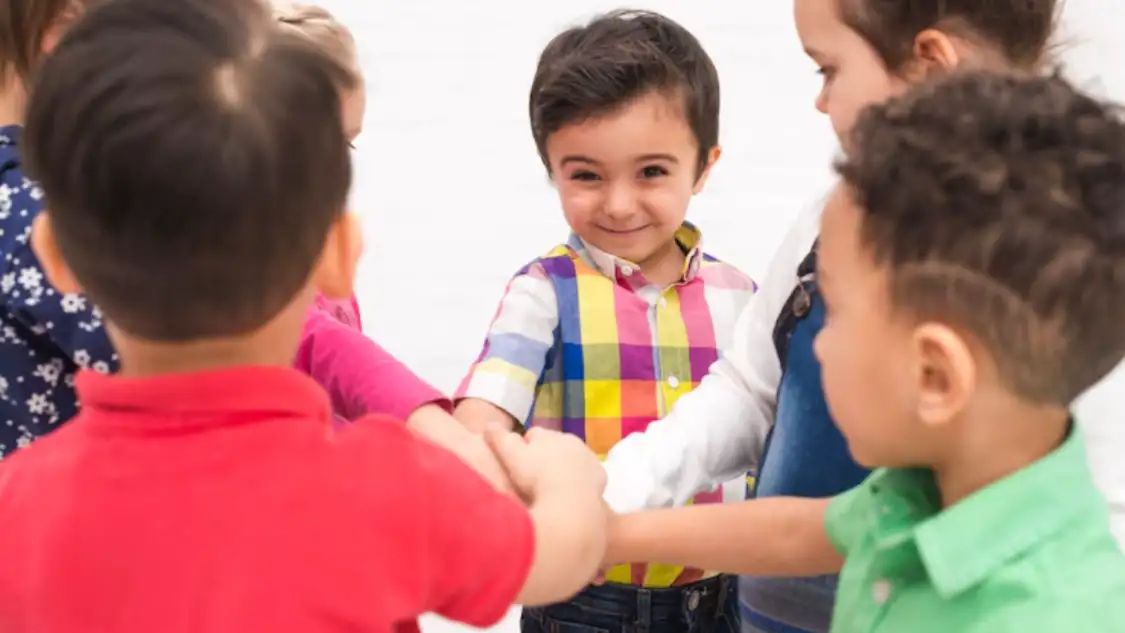The crucial role of social service and community connection for kids
As we navigate the complexities of the modern world, it is crucial to equip the younger generation with a deep understanding of their role in society. At the heart of this mission lies the conviction that children, when connected to their communities through meaningful social service initiatives, have the potential to become empowered leaders of tomorrow.
Building Foundations: Education Beyond the Classroom
Just as a foundation of holistic education emphasizes virtues of humanity, kindness, and coexistence, instilling these values in our children is fundamental. Beyond the confines of traditional textbooks, the journey of education extends into the realm of community service. It is through experiential learning and actively engaging with the community that children can grasp the intricacies of empathy, compassion, and the positive impact they can make on the world around them.
Connecting Hearts: The Power of Community Involvement
Social service for kids goes beyond the mere act of charity; it is about cultivating a sense of responsibility and ethics. The community becomes not just a group of individuals but a support system, a network that relies on each member contributing meaningfully. Initiatives such as “Kids for Community” exemplify this commitment, encouraging children to actively participate in local projects, connect with diverse groups, and understand the needs of their community.
From Classroom to Community: Nurturing Leadership Skills
Just as a commitment to exposing students to dynamic concepts and the latest ideologies fosters leadership skills, engaging children in projects like “Community Catalysts” instills a sense of ownership and leadership. Here, they learn to anticipate and solve problems within the community. This hands-on experience nurtures a generation of leaders who understand the importance of collaboration, innovation, and proactive problem-solving.
Beyond Borders: Celebrating Diversity Through Social Service
Recognizing diversity and promoting inclusivity are core principles. Similarly, social service endeavors for kids should celebrate diversity, fostering an environment where every child feels valued and included. Initiatives that encourage children to explore different cultures, traditions, and perspectives promote a global understanding that transcends geographical boundaries.
Digital Citizenship: Merging Technology with Social Responsibility
Innovative pedagogical approaches, seamlessly integrating technology, are hallmarks. Similarly, incorporating digital platforms into social service projects can amplify their impact. From organizing virtual fundraisers to leveraging social media for awareness campaigns, children can learn to utilize technology responsibly while championing noble causes. Teaching digital citizenship and ethical online behavior should be integral to any social service program for kids.
Parental Involvement: A Crucial Support System
To foster a 360-degree approach to education, actively involving parents in their child’s educational journey is key. Similarly, in social service initiatives, parental involvement is crucial. When parents actively participate in community projects alongside their children, it creates a shared experience that strengthens family bonds and reinforces the values learned at school. This collaborative approach extends the impact of social service beyond the individual child, creating a ripple effect within the community.
Empowering the Future: Recognizing and Honoring Achievements
Acknowledging and celebrating the achievements of children in social service endeavors is vital. Establishing awards, organizing recognition events, and showcasing the positive impact children have made in their communities not only motivates them but also inspires others to join the movement.
In conclusion, social service and community connection for kids are not just altruistic endeavors; they are essential components of shaping responsible, empathetic, and empowered leaders of tomorrow. By integrating these principles into education, we can contribute significantly to nurturing a generation that not only believes in itself but also believes in the collective power of communities working together for the greater good.
The author is president of The Lexicon Group. Views are personal.






